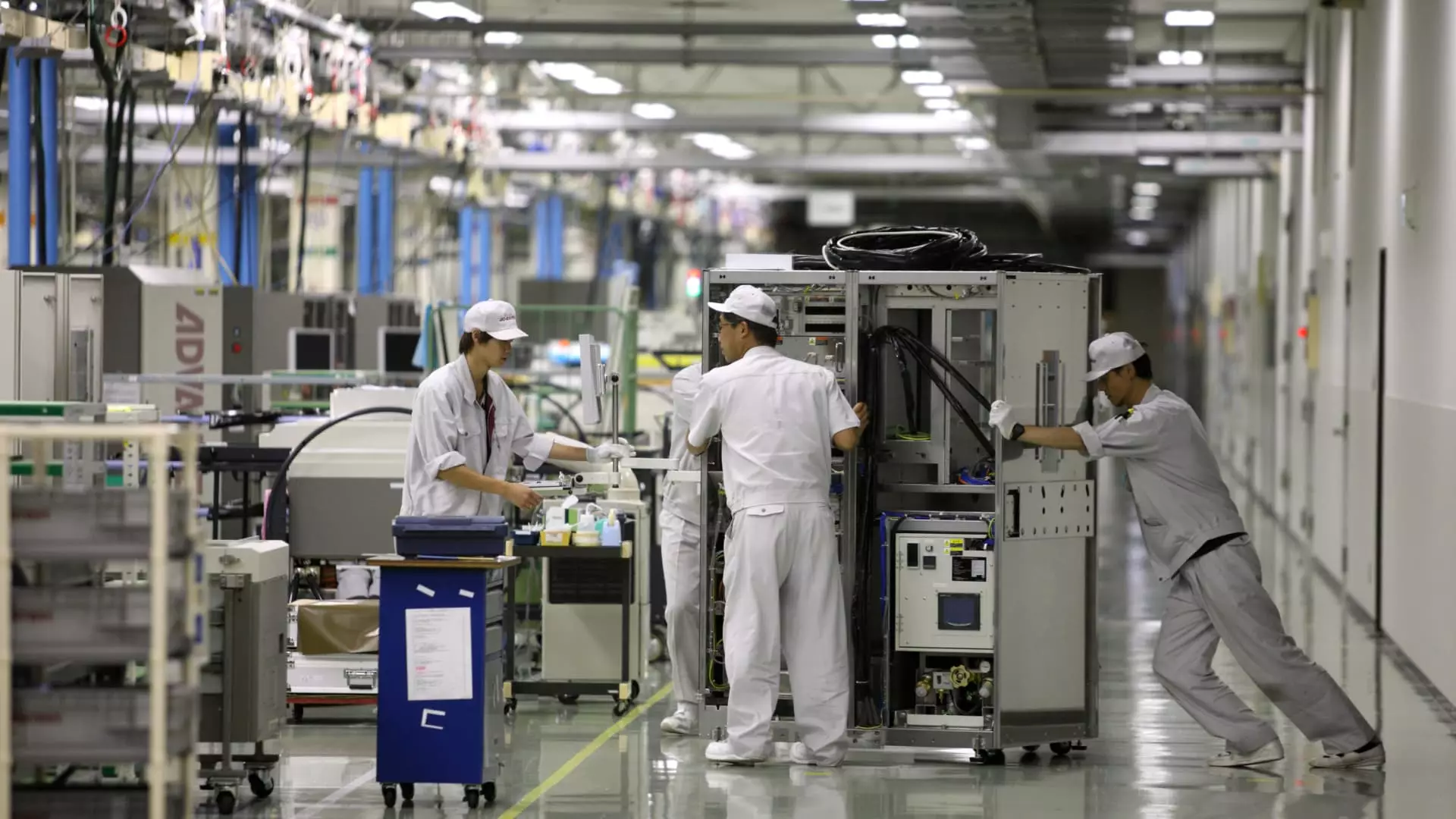The landscape of global technology is continuously evolving, and recent developments have underscored the competitive tension between Japan and China, particularly in the semiconductor and artificial intelligence (AI) sectors. This tension was vividly illustrated on a recent Monday when Japanese chip stocks plummeted in response to the rising prominence of DeepSeek, an ambitious Chinese AI startup. With an open-source large-language model launched in late December, DeepSeek has quickly positioned itself as a contender that directly challenges the established dominance of American tech giants. This emerging rivalry is not only reshaping investor sentiments but also calls into question the viability of Japanese tech firms within the framework of the United States’ AI ecosystem.
Japan’s semiconductor sector felt a sharp downturn, as evidenced by significant drops in share prices of key players. For instance, Advantest, a major semiconductor testing equipment supplier, saw its shares drop by 7.99%. Similarly, Tokyo Electron and Renesas Electronics experienced declines of 3.94% and 0.4%, respectively. The sell-off was exacerbated for Softbank Group, which owns the renowned chip designer Arm, as its shares declined 5.4% after a previous rally driven by CEO Masayoshi Son’s ambitious $100 billion investment agenda in the U.S. equity market.
Analysts attribute this reaction not merely to company-specific factors, but rather to a broader strategic shift in the market. Andrew Jackson, head of equity strategy at ORTUS Advisors, noted in an email to CNBC that the fears surrounding the DeepSeek challenge were fostering a distinct rotation from growth-oriented investments to value-centric strategies. The apprehension surrounding the viability and sustainability of Japanese chips amidst fierce competition from China raises broader questions about the long-term trajectories of these firms and their capacities to capture market opportunities.
DeepSeek’s astonishing progress is stirring worry among veteran investors and stakeholders in the Japanese technology scene. Notably, longtime investor Jesper Koll articulated concerns about Japan’s chipmakers, which, while potentially world-class, grapple with limitations regarding production scale and operational velocity. “China’s newfound urgency to excel in chip production poses a genuine threat to Japan’s aspirations,” Koll stated, suggesting that Japan may struggle to keep pace with China’s rapid advancements.
DeepSeek’s efficient launch of its AI capabilities—achieved in just two months at a notably low cost—highlights a potential game-changer that could redefine competitive dynamics within global chip markets. The implications of such rapid development are profound; they could upset not only the balance of power but also the investment strategies of major semiconductor firms in Japan and their collaborations with U.S. entities.
What complicates the scenario further are the stringent semiconductor restrictions imposed by the U.S. government, which limits China’s access to advanced chips. Despite these barriers, the ability of DeepSeek to emerge as a noteworthy player raises pertinent questions about the efficacy of U.S. diplomatic and economic strategies in containing China’s technological aspirations. As market strategist Junrong Yeap observed, the uncertainties surrounding DeepSeek could threaten the pricing power of established U.S. tech firms, compelling them to reassess their massive investments in AI infrastructure.
Furthermore, as DeepSeek achieves unprecedented download rates, becoming the most downloaded free app on iPhones, the urgency for U.S. firms to maneuver carefully through this evolving landscape grows. The possibility of a major economic recalibration looms, as Chamath Palihapitiya highlighted, suggesting that volatility and market re-evaluations are imminent consequences of this emergent competition. Nvidia, as Palihapitiya noted, seems particularly vulnerable, underscoring the intricate web of interdependencies in the tech industry.
In closing, the challenges posed by DeepSeek represent more than just a momentary dip in Japanese chip stocks; they signify a pivotal moment in global technology dynamics. As Asia and specifically Japan reassess their strategies, it becomes crucial for them to enhance their competitive edge. Investing in innovation, collaborative partnerships, and reinforced production capabilities may be paramount for Japan’s semiconductor sector to navigate the turbulent waters stirred up by ambitious competitors like DeepSeek. The tech race has never been more intense, and the stakes have never been higher.


Leave a Reply